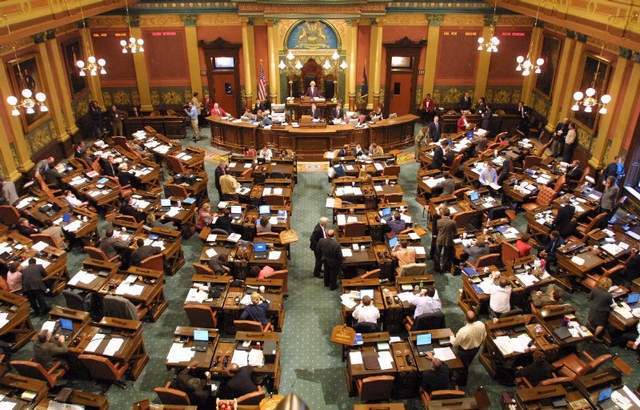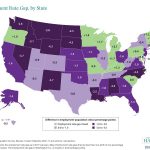Michigan residents distrust state government and they believe Lansing is failing in key areas such as education, public health and providing services to the poor.
That’s according to more than 5,000 people who participated in 125 town hall-style meetings and polling conducted throughout 2016 by the nonprofit research group Center for Michigan. Those sessions also revealed widespread distrust in Michigan’s emergency manager system of overhauling certain cities and school districts, plus the lack of transparency in the state’s election process.
“The public does not trust state government to deliver on many of its key missions and sees urgent need to improve the state government services that taxpayers fund,” the Ann Arbor-based center, which also publishes the vaunted Bridge Magazine news site, said in a press release. “Michigan residents do, however, identify several actions state leaders can take to improve public trust in state government, including reform of the emergency manager and campaign finance systems.”
The center today unveiled a report, “Fractured trust: Lost faith in state government, and how to restore it” that offers conclusions for Michigan’s political leaders to consider:
- Low public trust: The majority of Michigan residents said they had either “low” or “very low trust” of state government’s ability to deliver on all five major areas the center explored: Oversight of K-12 and higher education; protection of public health; environmental protection; services for low-income residents; and fostering economic growth.
- Mandate for improvements: More than 80 percent of all participants in these “community conversations” said it was either “important” or “crucial” for state government to improve in these five service areas. Public education emerges as a top priority, with respondents choosing it as the policy area most in need of attention.
- Fix emergency manager system: Sixty-five percent of all participants have “low” or “very low” trust in the state emergency manager system. To improve finances and services in struggling cities and school districts, residents want more checks and balances in the law so that decision making is balanced between state-appointed emergency managers and locally elected officials.
- Transparency in campaign finance: Eight in ten Michigan residents reported “low” or “very low” trust in the campaign finance system’s ability to balance free speech rights with the need to protect elections from undue influence by shadowy special interest groups. The most popular solution to improve trust in the campaign finance system is to strengthen transparency and reporting requirements to provide better public information about who donates to candidates.
One participant in the question-and-answer discussions conducted by the center offered this daunting assessment: “It doesn’t matter who we get elected to represent us, because they’re not there to represent us. I find it mind boggling to try to answer these questions in a calm way. It’s not possible because there’s too much sorrow and pain and expense in how we’re operating the state.”
Overall, the nonpartisan center explored other options to improve state government accountability, such as reforming the Legislature’s term limits or revamping the partisan process for drawing legislative districts. Those proposals did not receive consistent majority support in the research conducted.
You can read more here.











